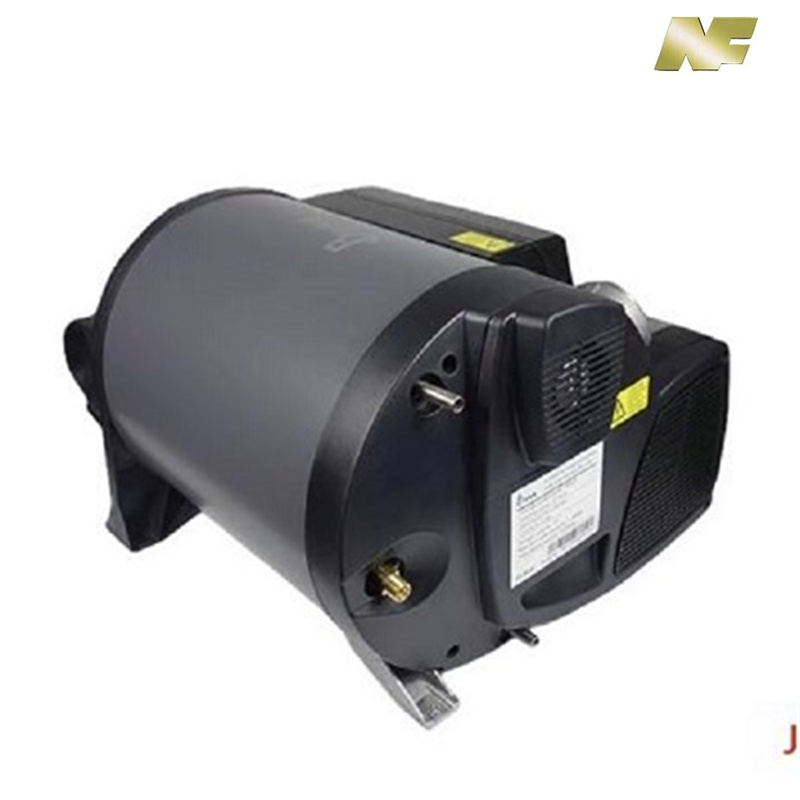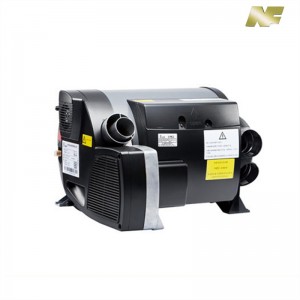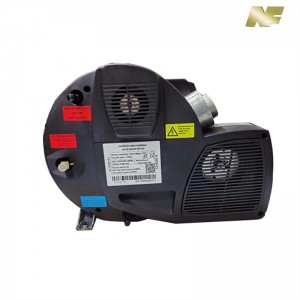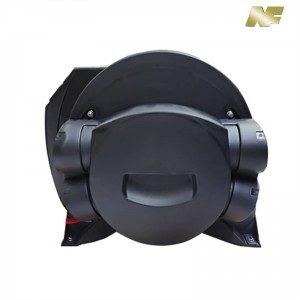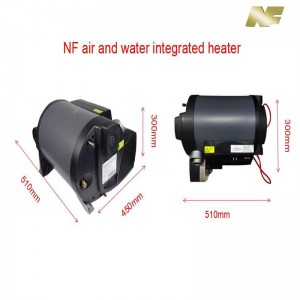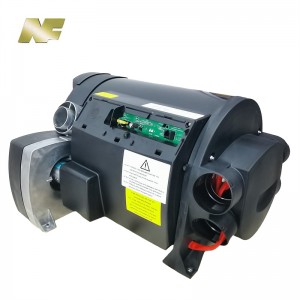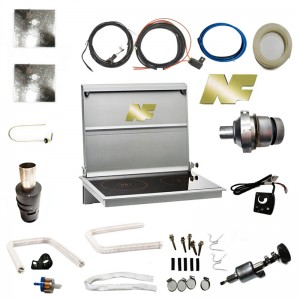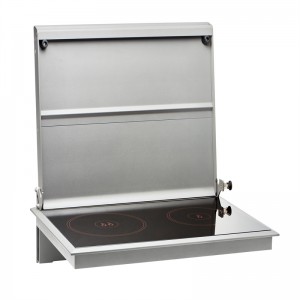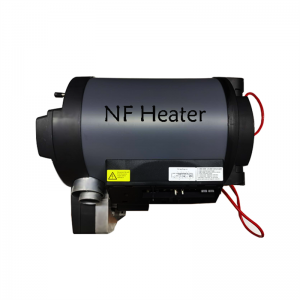NF RV 110V/220V-240V LPG DC12V Water And Air Combi Heater Similar To Truma
Description
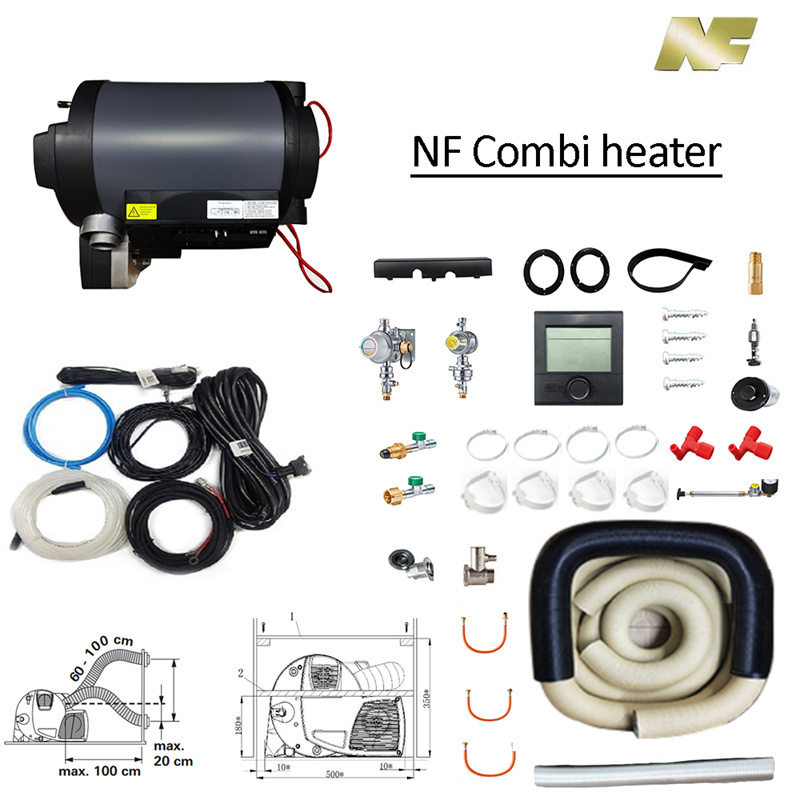
When you're embarking on an adventure in your motorhome, a must-have item to keep you cozy on cold nights is a high-efficiency combination heater. Combining the benefits of a water heater and a heating system, the RV LPG combi heater is a must-have for any camper. In this blog, we'll explore the key features and considerations when choosing the perfect RV combination heater for your camper.
1. Efficient heating:
In the world of RV combination heaters, LPG models are popular for their superior heating capabilities. The combustion process of these heaters creates heat quickly, perfect for colder nights. An added bonus is that LPG is readily available at most gas stations, so you can easily get heater fuel.
2. Compact and space-saving:
Space is always at a premium during your RV adventure. Thankfully, LPG combi heaters have a compact design, ensuring they don't take up valuable space in your camper. These heaters can be easily integrated into your existing RV system, maximizing your space and providing efficient heating.
3. Safety features:
Safety should always be a top priority when choosing an RV combination heater. Look for models with built-in safety features, such as overheat protection, flameout devices, and low oxygen sensors. These features ensure that the heater shuts off in the event of any malfunction or unsafe condition, giving you peace of mind while enjoying your travels.
4. Energy efficiency:
RV combination heaters that run on LPG are known for their energy efficiency. They consume minimal fuel while producing plenty of heat, making them a cost-effective choice for long-term use. Fuel-efficient vehicles can help you save money on fuel, allowing you to use those funds for other adventures on the road.
in conclusion:
When it comes to choosing the perfect RV combination heater for your camper, LPG models fit all the boxes. Efficient heating, space-saving design, safety features, and energy efficiency are some of the advantages of choosing a camper van LPG combination heater. Always remember to choose a reliable and reputable manufacturer for your combination heater to ensure your safety and comfort. With the right LPG combination heater for your motorhome, you can ensure warm and comfortable nights so you can get the most out of memorable road trips.
Technical Parameter
| Rated Voltage | DC12V |
| Operating Voltage Range | DC10.5V~16V |
| Short-term Maximum Power Consumption | 5.6A |
| Average Power Consumption | 1.3A |
| Gas Heat Power (W) | 2000/4000/6000 |
| Fuel Consumption (g/H) | 160/320/480 |
| Gas Pressure | 30mbar |
| Warm Air Delivery Volume m3/H | 287max |
| Water Tank Capacity | 10L |
| Maximum Pressure of Water Pump | 2.8bar |
| Maximum Pressure of System | 4.5bar |
| Rated Electric Supply Voltage | 110V/220V |
| Electrical Heating Power | 900W OR 1800W |
| Electrical Power Dissipation | 3.9A/7.8A OR 7.8A/15.6A |
| Working (Environment) Temperature | -25℃~+80℃ |
| Working Altitude | ≤1500m |
| Weight (Kg) | 15.6Kg |
| Dimensions (mm) | 510*450*300 |
Product Size
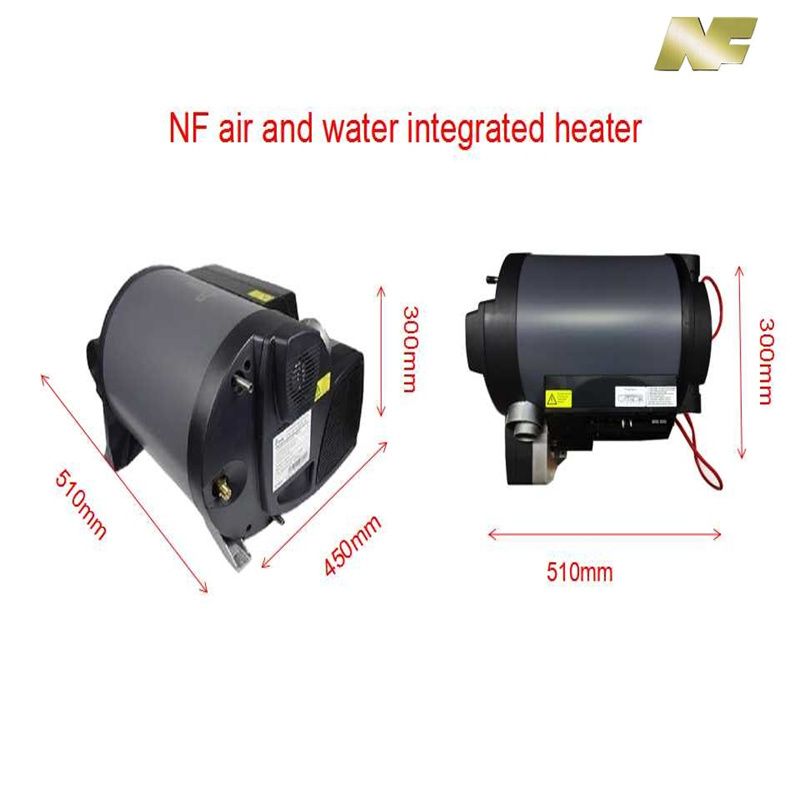
Installation
★ Must be installed and repaired by professionals authorized by the company!
The company does not bear any responsibility for the following acts:
--Modified heater and accessories
--Modification of exhaust lines and accessories
--Do not follow the operating installation instructions
--Do not use our company's special accessories
Application


FAQ
1. What is a RV combination heater?
An RV combination heater is a heating system that combines a water heater and a space heater in one unit. It is commonly used in recreational vehicles to provide daily hot water and heating of living spaces.
2. How do RV combination heaters work?
RV combination heaters operate on propane or diesel. It uses the combustion process to generate heat, which is then transferred to the RV's water and air circuits. It is controlled by a thermostat that allows the user to set the desired temperature.
3. Can I use an RV combination heater while driving?
Yes, most RV combination heaters are designed to be used while the vehicle is in motion. They are equipped with safety features to ensure proper operation even during travel.
4. Are RV combination heaters safe?
Yes, RV combination heaters are designed with safety in mind. They often have built-in safety features, such as flame monitoring systems, automatic shutdown in the event of a malfunction, and carbon monoxide detectors to ensure the health of the RV occupants.
5. How long does it take for an RV combination heater to heat the water and living space?
The amount of time it takes an RV combination heater to heat the water and living space can vary, depending on factors such as heater model, outside temperature, and desired set temperature. However, most RV combination heaters can provide hot water within minutes and bring the interior to a comfortable temperature within 15-30 minutes.
6. Can I use the RV combination heater to heat water only or air only?
Yes, RV combination heaters can be used to heat water only or air only, depending on your needs. They offer individual controllers to regulate the temperature of each circuit, allowing customization to suit personal preferences.
7. What kind of maintenance does an RV combination heater require?
To ensure the proper functioning of your RV combination heater, regular maintenance is required. This includes cleaning or replacing the air filter, performing an annual inspection, checking for any potential leaks, and servicing the unit as recommended by the manufacturer.
8. Can I install an RV combination heater myself?
It is generally recommended to have an experienced professional install an RV combination heater. Improper installation may result in a safety hazard and void any warranty associated with the product. Consult the manufacturer's instructions or contact a certified installer to ensure proper, safe installation.
9. Can an RV combination heater be used in extreme weather conditions?
RV combination heaters are designed to work in all weather conditions, including low temperatures. However, it is worth noting that extreme weather conditions may affect the performance and efficiency of the heater. It is recommended to consult the product manual or contact the manufacturer for specific information on use in extreme conditions.
10. Are RV combination heaters energy efficient?
Yes, RV combination heaters are known for their energy efficiency. They are designed to use fuel efficiently and maintain a comfortable temperature without using excessive amounts of energy. Additionally, the ability to control separate circuits for water and air enables users to optimize energy use according to their specific needs.

